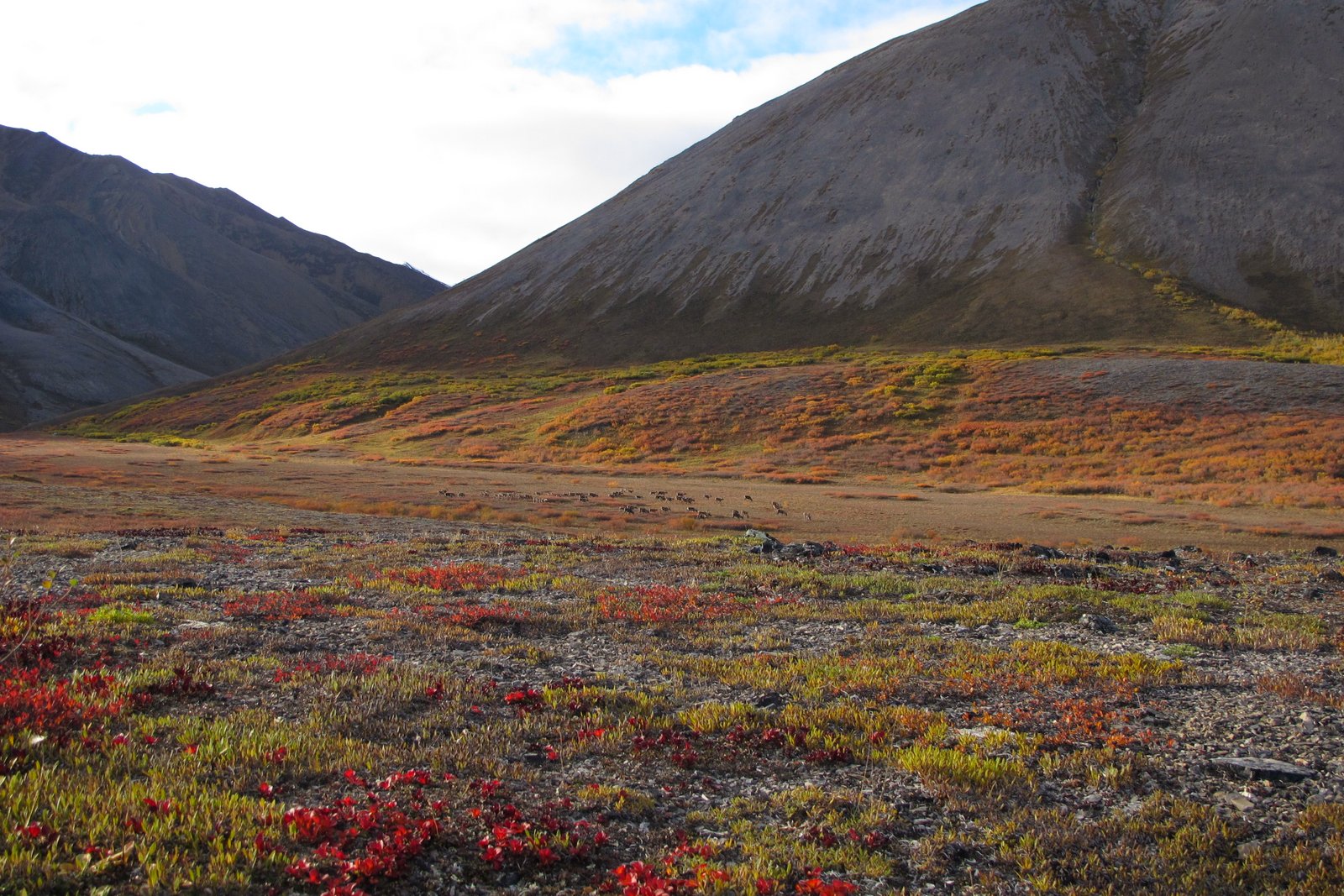Environmental groups sue to overturn the approval of a controversial Arctic Alaska mining road
The federal approval of a 211-mile road to the Ambler mining district violated several laws, the groups' lawsuit said.

Environmental groups on Tuesday filed a lawsuit challenging the Trump administration’s approval of a 211-mile mine access road that would cut through a wide swath of landscape in Alaska’s Arctic.
The lawsuit, filed in U.S. District Court in Anchorage, seeks to overturn the July 23 approval issued for the Ambler Mining District Industrial Access Project. The record of decision was issued jointly by the Bureau of Land Management, the agency leading the environmental impact process, and the U.S. Army Corps of Engineers, which has jurisdiction over construction in wetlands.
[Trump administration grants approval for Ambler mining road]
The Ambler road is envisioned as a key transportation link that would make it commercially possible to operate mines in the copper-rich but isolated Ambler district of northwestern Alaska. The state is planning to finance the road, and one of its agencies, the Alaska Industrial Development and Export Authority, is the project sponsor.
The lawsuit claims the agencies’ approval of the road plan violates several environmental laws and was based on a rushed and inadequate study of environmental impacts. The lawsuit says those lapses threaten important wildlife habitat, including a section of Gates of the Arctic National Park and Preserve, and the welfare of people in the Alaska Native villages in the region, whose tribes have passed resolutions opposing the road.
The stakes are high, the lawsuit said.
“The wilderness values of the southern Brooks Range and Gates of the Arctic are incomparable. The area provides unique opportunities to study and understand ecosystems and functions on a landscape scale. The undeveloped and undisturbed character of the area offers world-class wilderness recreation opportunities. The integrity of the area’s ecosystems provides unique habitat to numerous wildlife species. In short, the ecological, cultural, and wilderness values of the area are extraordinary,” it said.
Among the lapses were failures to properly consider cumulative impacts of the road development, the associated impacts of mine development and gravel extraction and impacts to water quality, the lawsuit said. The U.S. Army Corps of Engineers failed to include any requirements for mitigation to offset unavoidable impacts to wetlands, it argued.
Another lapse was the failure to prepare a supplemental EIS after AIDEA amended its road plan. Those alterations, submitted on Feb. 5 — after the draft EIS had been released in August of 2019 — reduced the road width, added 20 new bridge crossings, added material sites and access roads, maintenance stations and 12 communications towers. The general public never got an opportunity to comment on those changes, the lawsuit said.
Plaintiffs in the case are the Northern Alaska Environmental Center, Alaska Wildlife Alliance, Center for Biological Diversity, Earthworks, the National Audubon Society, National Parks Conservation Association, Sierra Club, The Wilderness Society and Winter Wildlands Alliance. The environmental law firm Trustees for Alaska is representing the plaintiffs, along with the Colorado-based Western Mining Action Project.
“The information gaps in the Ambler road permits and environmental review are massive,” Bridget Psarianos, a staff attorney with Trustees for Alaska, said in a statement. “These agencies lack the fundamental information necessary for permitting a project like this, including the location of the proposed road. The agencies’ conclusion that this project will comply with environmental laws is akin to making a decision by shaking a Magic 8-Ball.”
The main beneficiary of the road would be Trilogy Metals Inc. The Canadian company has formed a partnership with Australia’s South32, Ambler Metals LLC, that seeks to develop some of the Ambler mineral deposits. Those deposits include gold, silver, zinc, lead and cobalt as well as copper.
A BLM spokesman defended the agency’s decision in favor of the road.
“We stand by the environmental review underlying our decision that provides access to the world class and strategically important Ambler Mining District in Northwest Alaska. Our decisions are lawful and based on an extensive process involving input from BLM career subject matter experts and the public. The Department will continue to implement President Trump’s agenda to create more American jobs, protect the safety of American workers, support domestic energy production, and conserve our environment,” BLM spokesman Derrick Henry said in an email sent Wednesday.
A spokesman for AIDEA said the agency is reviewing the complaint.
“We are aware of the lawsuit filed today regarding the BLM Joint Record of Decision on the Ambler Access Project, and the matter is currently under review and consideration,” AIDEA spokesman Karsten Rodvik said by email.
AIDEA officials have described the Ambler road as a critical piece of a strategy to advance and diversify Alaska’s economy. They repeated that argument in a July 23 statement hailing the record of decision.
“This long-sought development of the road and mining district represents tremendous potential for economic growth, diversification, and job opportunities for Alaskans, along with revenue expected to the State and local governments for decades,” AIDEA Board Chairman Dana Pruhs said in that statement.
AIDEA has authorized an expenditure of nearly $500,000, to be matched by Ambler Metals, for pre-construction road work this summer.
This story has been updated with a statement from the BLM in response to the lawsuit.